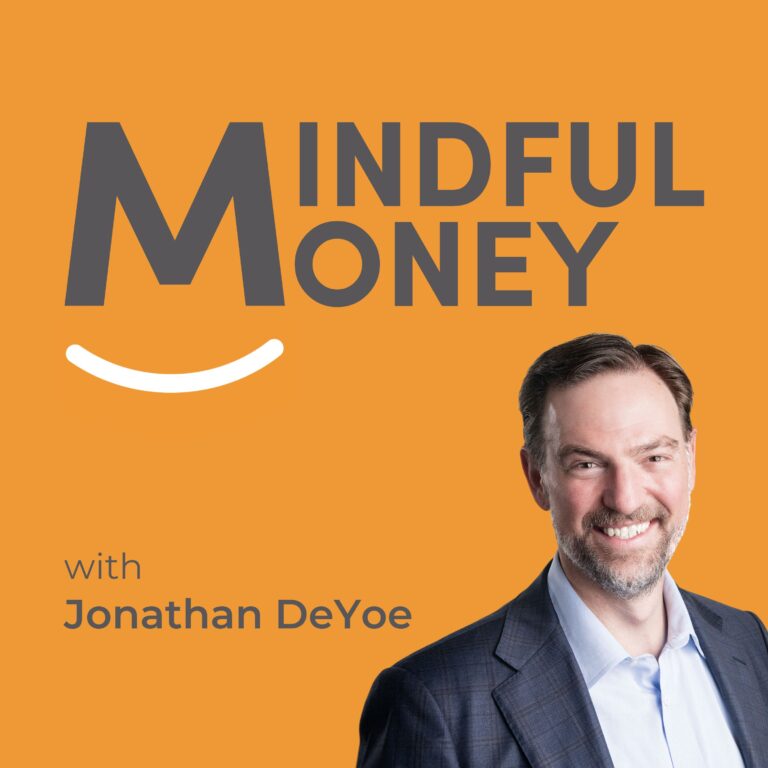When we are little, all our worldly possessions fit inside a single box. As we grow up, we acquire more things… and need more boxes. As we complete our educations and launch into our careers, we begin a march towards ever-increasing financial complexity…
And we continue to need more boxes.
At some point, you may wonder whether it may be time to hire a financial advisor. In the very next moment, you may wonder if it’s worth the cost. This is our quick and dirty attempt to help you answer that question.
Financial advisors do lots of different things:
- They may help you create a vision for your life and set goals that make sense.
- They can help you plan your spending and manage your debt.
- They might help you with health and long-term care planning.
- Most will help you with retirement income planning.
- Many will help you with inheritance and tax planning.
- Some can help with your estate and philanthropic planning.
- A few will walk you through your employee benefits.
- Some will help build and manage a portfolio (or portfolios) for you.
- Some, like me, even offer mindfulness classes to help you stay the course when it gets hard (which is inevitable).
There are lots of different kinds of financial advice out there; the key is knowing what you want/need.
Ask yourself:
Can I manage my personal finances on my own?
Do I want to manage them on my own?
Do I want to do it all, or just part of it myself?
If I need help, what specific help do I need/want?
Will I want someone to talk with when my investments are more volatile than I expected?
Do I want a person, or am I comfortable working with technology?
Once you’ve answered those questions, we hope this guide will help you decide exactly what kind of financial advice would work best for you.
“Advice” Options
There’s nothing wrong with wanting to be your own financial advisor – it isn’t rocket science or brain surgery. There are three simple decision points that will get you 90% of the way there – Savings Rate, Equity Allocation, and Withdrawal Rate. If you get these three right, the rest of your more detailed and complex decisions will barely move the needle.
Still, it is best to go into this with eyes open. Managing a lifetime of finances will generally require time and effort, may require your attention at inconvenient times, and as things get more complex, there will be optimizations that require specialized knowledge.
For Do-It-Yourselfers, I wrote two books:
- Mindful Money: Simple Practices for Reaching Your Financial Goals and Increasing Your Happiness Dividend – which is a simplified path to creating your own financial plan.
- Mindful Investing: Right Focus, Better Outcome, Greater Well-Being – which is a simplified path to investing your own money.
You can also opt for a “hybrid approach” combining some technology like a digital-advisor (explained below), and/or a digital planning tool, and then supplement it with an hourly-paid planner or the Mindful Money Membership.
Digital Advisors
A “digital advisor” is just what the name suggests: investment management that matches a pre-designed portfolio based on your scored answers to a risk tolerance and time horizon questionnaire with an algorithm. Given that there is little customization or human interaction, most digital advisors charge a lower annual management fee than a human advisor might charge.
Robo-advisor algorithms are based on Modern Portfolio Theory (MPT), a strategy that allocates between asset classes in your portfolio rather than considering individual securities. Most digital advisors use low-cost stock and bond exchange-traded funds (ETFs) to build a portfolio. Some also provide services like rebalancing and tax-loss harvesting.
The Mindful Money Membership is designed to be a decision-support system for those who are either doing it themselves (DIY) or using any of the well-known digital advisor platforms (Schwab, Betterment, Wealth Advisor). We have a variety of financial education courses, and when it is time to start implementing, we offer group coaching through our “Monthly Maintenance” and “Ignore the Noise” sessions.
Human Advisors
It’s true that many human advisors also use MPT as a starting point when giving advice, but “advice” can be tailored to your situation, and it isn’t limited to portfolio design.
Morningstar research suggests that a human advisor can add “gamma” factors to retirement planning. By focusing on financial planning, withdrawal rate adjustments, tax efficiency, and annuity purchase decisions, a good financial advisor can help you generate an income level more than 20% higher in retirement.
Vanguard research suggests similarly dramatic benefits from hiring an advisor. Vanguard focuses on planning and behavioral psychology, rather than trying to beat the market. Advisors in Vanguard’s study added 3% to average annual net returns for clients – though Vanguard cautions that these benefits concentrated in periods of heightened excitement and anxiety in markets.
Involving a human advisor is more expensive, but it can be worth it. Depending on your interest level and the complexity of your personal finances, you can experience enormous value working with a human advisor. Human financial advisors can help with all the issues related to personal finances and money management:
Planning: A financial advisor should help you think through and prioritize different goals, determine a spending and savings plan, build an appropriate asset-allocation, and help you consider and manage risk.
Behavioral coaching: Investing is emotional. A good financial advisor coaches you through investing with heightened emotions. Often times it is a well-placed “don’t do that” from someone we trust that has the best chance of saving us from ourselves. Your advisor can maintain emotional detachment when you can’t.
Portfolio management: In addition to planning and providing a roadmap, some advisors engage in portfolio management. They create appropriate asset-allocations, select securities, manage contributions and withdrawals, and control rebalance frequencies.
Wealth management: Some advisors help you manage all aspects of your wealth — not just your portfolio. Wealth managers provide you with continuous guidance, help you consider your legacy, and make all aspects of your financial world work together. As necessary, they may integrate other types of advisors – your tax professionals, estate planning attorneys, and business advisors.
My Team at EP Wealth spends all day everyday working on client concerns and finding ways to help our clients reach their goals, improve their returns, educate their kids, create retirement incomes, save money on taxes, and take care of their families (now and across generations).
If you’re curious about what it would be like to work with us, click the “Contact Jonathan” button HERE.
10 Questions to Ask a Potential Advisor
If you decide to hire a financial advisor (a human), ask people you know for referrals. If possible, interview at least two advisors. As you do these interviews, you will become more familiar with this arena and more comfortable about deciding. Don’t short the process. Here are 10 questions to ask:
1. Are you a fiduciary?
This is the most important first question. One way to reduce the chance that you’ll end up with a financial advisor who has too many conflicts of interest is to look for a fiduciary. A fiduciary is required to put your interests above their own.
2. What are your credentials?
Find out if your financial advisor holds any specific credentials. Is the firm they work for a Registered Investment Advisor (RIA)? You can also ask about designations like:
Certified Financial Planner (CFP)
Chartered Financial Analyst (CFA)
Chartered Financial Consultant (ChFC)
Chartered Private Wealth Advisor (CPWA)
Certified Investment Management Analyst (CIMA)
Accredited Investment Fiduciary (AIF)
These are designations that come with different education and experience requirements. Additionally, these designations are awarded by third-party organizations that also require ethical behavior. Find out what credentials your potential advisor has and then double-check to ensure their designation is up to date.
3. What type of experience do you have?
In addition to knowing how long an advisor has been working with individual and family-group clients, you also want to know what type of expertise they have. Do they have specialized knowledge, for example, about small business planning, estate planning, insurance, etc? The essential question to ask yourself is: “Do they have experience working with people like me?”
4. Do you have disciplinary actions on your record?
If you can, find out about disciplinary actions, if any. Many firms might have some items to disclose, particularly regarding client suits for damages. Some can be serious enough to require another choice, but some may not be. Here is a paragraph from the SEC’s website:
An easy way to check out an investment professional is to use the free search tool available on Investor.gov, which will direct you to the SEC’s Investment Adviser Public Disclosure website (IAPD website). You can also visit the IAPD website directly, FINRA’s BrokerCheck program, and/or your state securities regulator.
5. How are you paid?
Find out what fees are charged, as well as if there are commissions involved. While a fee-based financial advisor can be a good choice, if you’re just starting out, you might feel more comfortable with an advisor whose ONLY compensation comes from you, the client. This is a fee-only advisor.
6. How do you report investment performance?
A lot of financial advisors will tout their track record. Determine if the numbers they are reporting are the result of an audit. Performance claims should be met with a great deal of skepticism. Inquire to find out if their performance reports are gross or net of fees. Net of fees is more pertinent to your likely outcome.
7. What services does my fee include?
Find out how your fees are charged, when and what you can expect (see discussions above about fees and how they are arrived at and charged). In addition, what other services are provided within the fee – e.g., updates to plans, family financial education services, one-to-one meetings, events, if any, and what type – and what will require extra charges.
8. What’s your investing philosophy?
Ask how they make investment decisions. Do they take a growth approach, or a value approach, or a core approach? Do they rebalance, and when? What types of investments do they use? Are they all U.S. or do they invest internationally? If so, where? Do they “market time?” Do they hold cash, or are their portfolios all invested? Stay away from market timers, or anyone that tells you they can predict future relative performance of different investments.
9. Where do you keep my assets?
Find out where your assets are housed (“custodied”, as they say in the trade.). Most financial advisors use third-party custodians such as Schwab, Fidelity, or Pershing. The custodian issues your statements and is responsible for your assets. Also, you should be able to view your accounts and monitor their performance.
10. How often will we meet?
Find out how often you’ll meet, whether there’s an annual review, when they suggest you make changes to your plan, whether you will have access between meetings, and what sort of educational opportunities your advisor might provide.
Bottom Line
There’s a lot that goes into creating and managing a long-term financial and investment plan. You can do it yourself or get the help of advisors. It doesn’t matter which direction you choose to go; it is the consistency of process and continuous mindfulness of your plan that will ultimately get you there.
There will come a time (probably many times) when your plan will be tested… when it will appear to not be working anymore, and when the world will be screaming at you that your process “must be changed immediately or you will surely fall behind and never reach your stated goals.” In the vast majority of cases, you will need to stand fast on your plan and keep faith in your process.
Figure out what you need and what works best for you, and use that to guide your decisions. If you want to hear more about any of the above, let me know. I will happily help you figure out which path is right for you.





